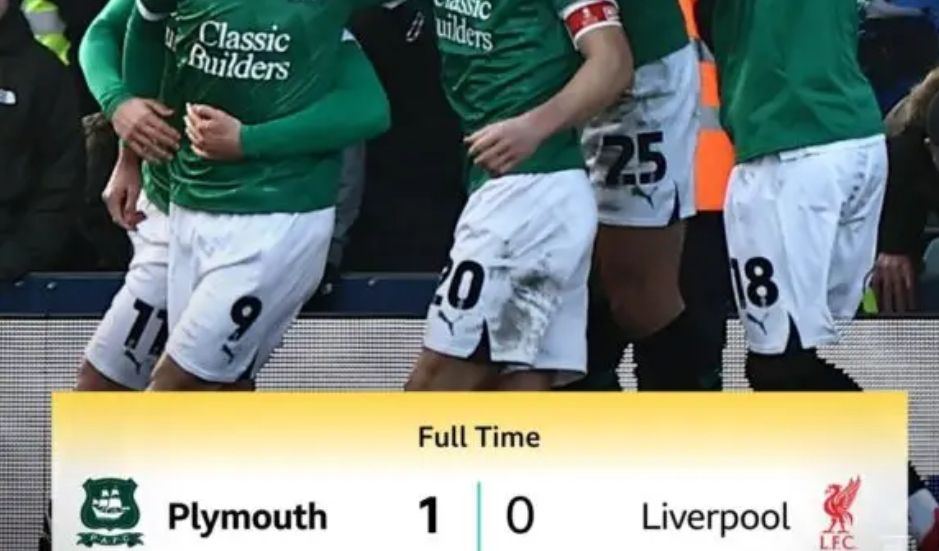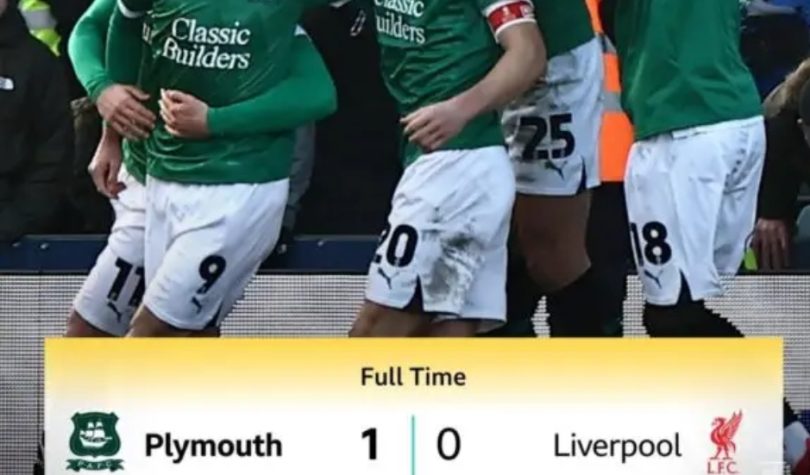In the high-octane world of football, performances are dissected with surgical precision, and even the most celebrated players are not immune to criticism. Recently, Manchester United legend Gary Neville delivered a scathing critique of a Liverpool player’s performance against Plymouth, stating, “I have said this multiple times but this is the final straw. His performance during today’s match was the last straw.

He was just wasting the efforts of his teammates. He has only been a disappointment.” Neville’s pointed remarks have ignited a fervent debate about individual accountability and team dynamics within elite football.
While Neville refrained from naming the player, his comments have cast a spotlight on Liverpool’s squad and the challenges faced by manager Arne Slot. Slot, renowned for his tactical acumen and player development, now faces a pivotal decision: should he heed Neville’s advice and consider removing the underperforming player, or should he offer support and an opportunity for redemption?
Slot’s tenure at Liverpool has been marked by both commendable successes and notable challenges. He has previously demonstrated a keen eye for talent and a willingness to make bold choices. For instance, after a comeback win against Brighton, Slot singled out Joe Gomez for praise, stating, “He was outstanding in the second half.”
However, Slot has also shown that he is not afraid to address underperformance. Following a match against Wolves, he candidly remarked, “The first 15/20 minutes weren’t great. It was a real tough start for us but eventually we took control of the game.”
The current situation presents Slot with a dilemma: should he heed Neville’s advice and consider removing the underperforming player, or should he offer support and an opportunity for redemption? This decision is further complicated by the intense media scrutiny and the expectations of Liverpool’s passionate fan base.
It’s worth noting that Neville’s critiques are not limited to rival teams. He has previously expressed concerns about players from his own former club. For example, after a match against Liverpool, Neville commented on Marcus Rashford’s form, stating it was “sad” to watch his struggles on the pitch.
In the world of football punditry, such critiques are part and parcel of the game. They serve to highlight areas of concern and spark discussions among fans and analysts alike. For the players involved, these assessments can serve as motivation to improve and prove their doubters wrong.
As Liverpool prepares for upcoming fixtures, all eyes will be on Slot’s lineup decisions. Will he make the bold move to bench the underperforming player, or will he place his trust in their ability to bounce back? Only time will tell, but one thing is certain: in football, performance is paramount, and every player must rise to the occasion.
In conclusion, Gary Neville’s pointed critique serves as a stark reminder of the relentless pressure in professional football. For Liverpool and Arne Slot, it presents an opportunity to reassess and make strategic decisions that could shape the remainder of their season. The beautiful game is as much about individual brilliance as it is about cohesive teamwork, and finding the right balance is key to sustained success.






